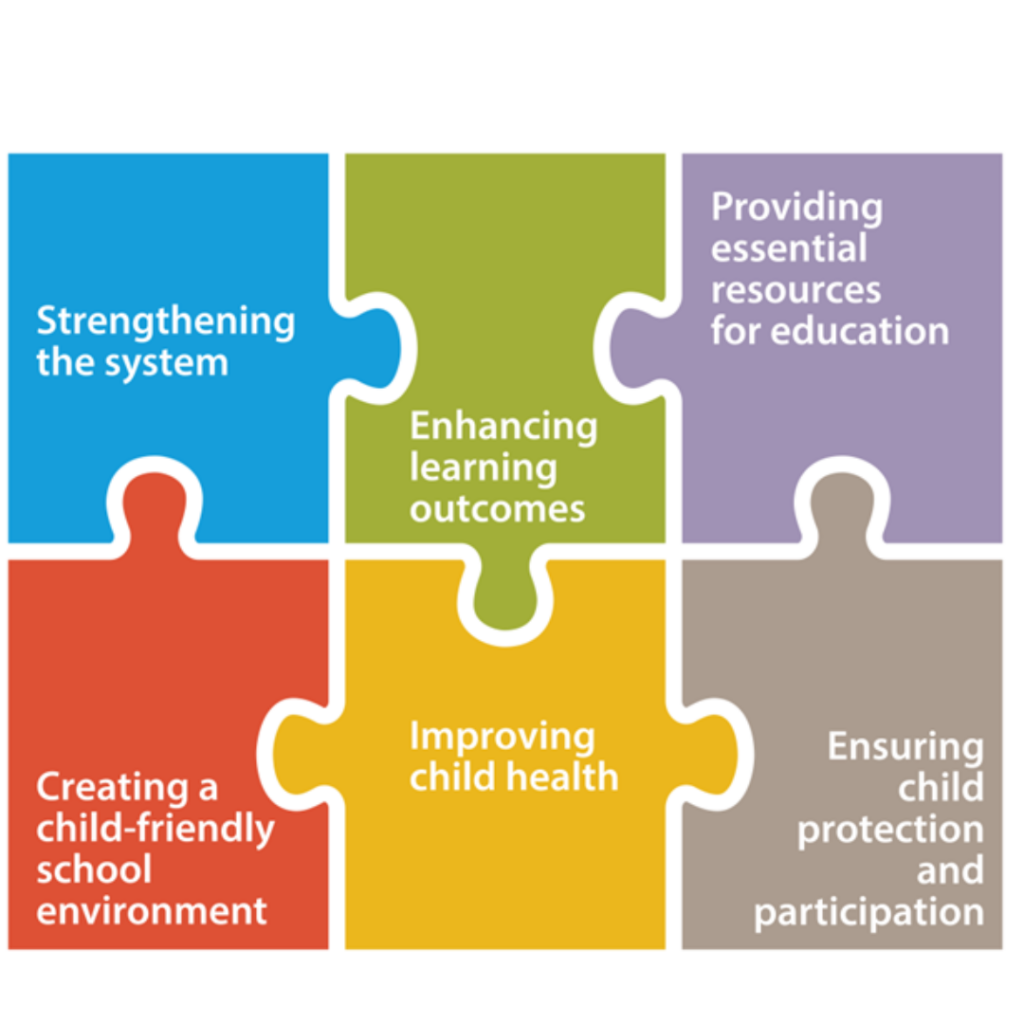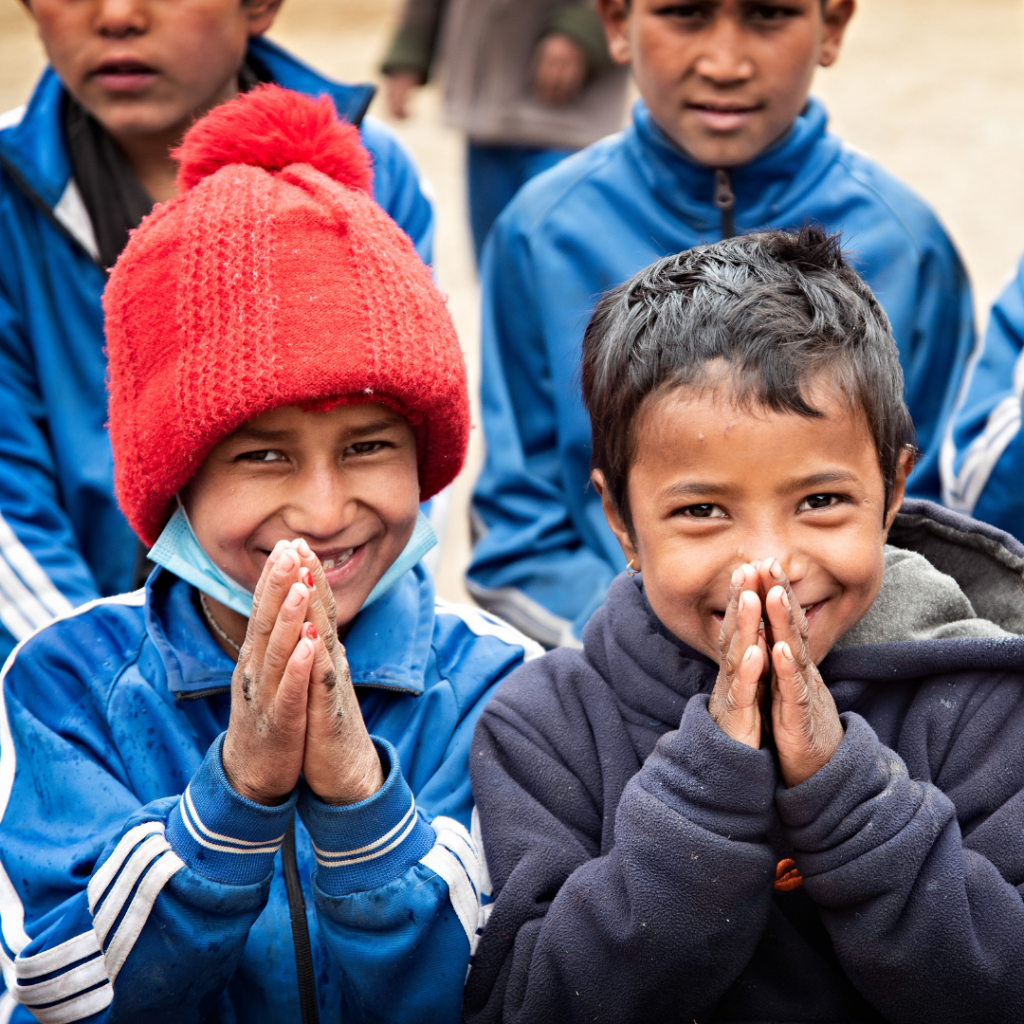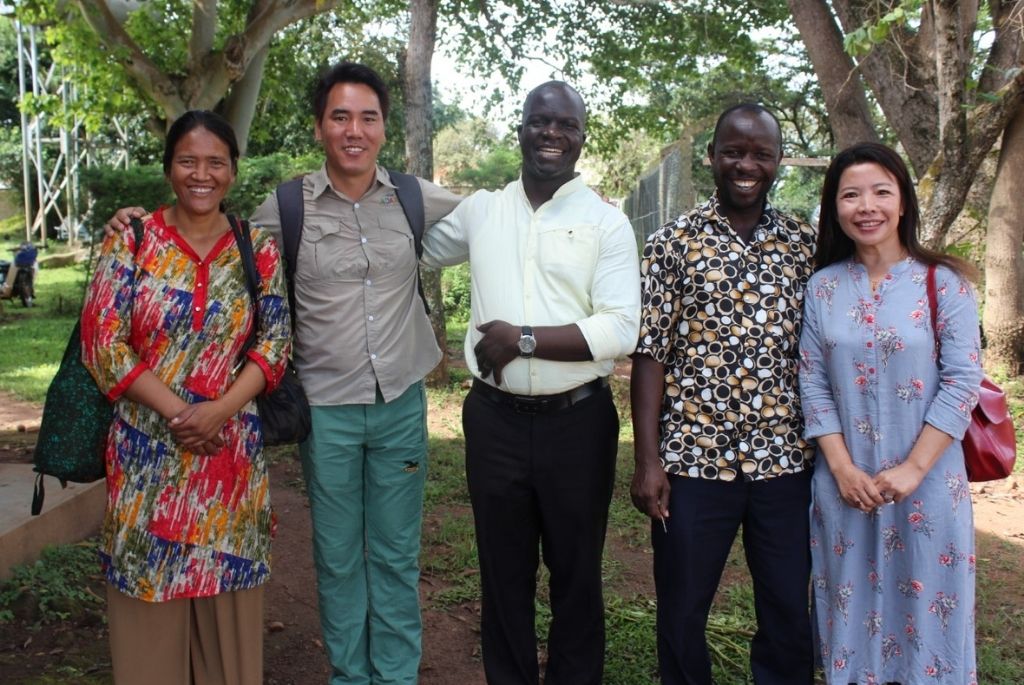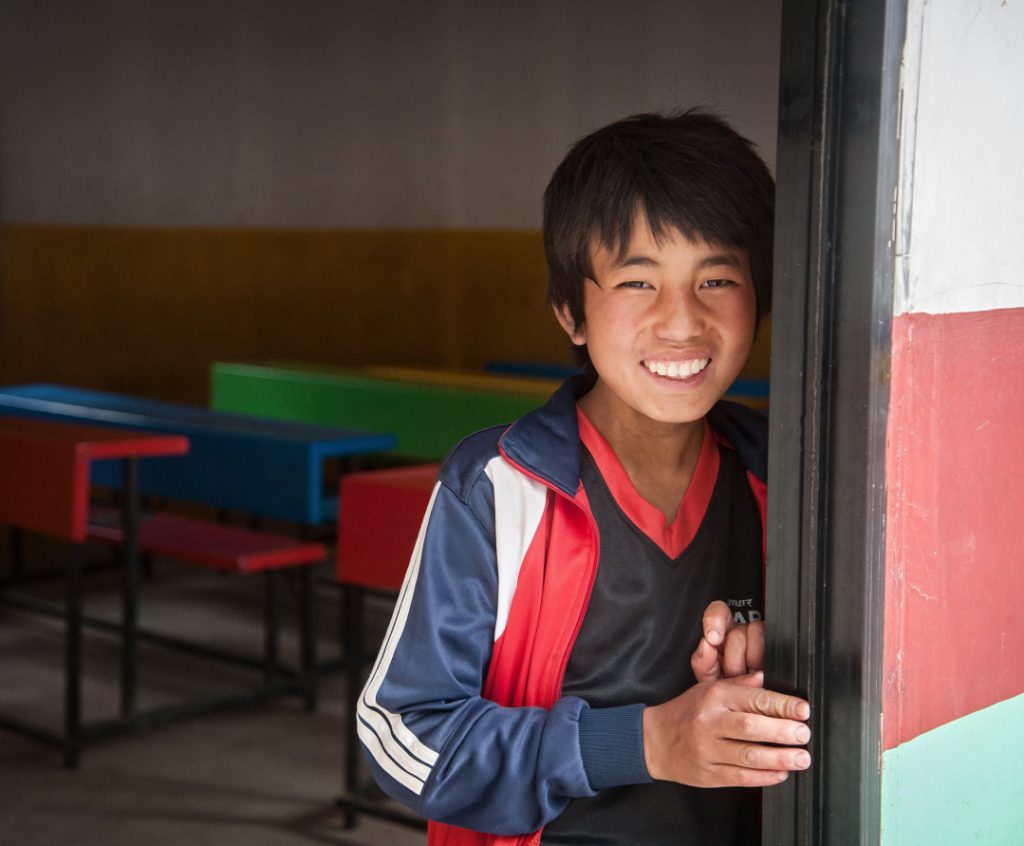Since 1998, we’ve developed programmes that improve health and education outcomes in remote areas.
Now we’re strengthening and scaling these programmes through our AdaraRemote model. This is designed to improve access to essential services for people living in isolated areas. It does this by leveraging our track record of health and education service delivery while also addressing emerging challenges such as climate change and child protection.
As such, AdaraRemote is underpinned by five pillars: education, child protection, youth development, health, and community resilience. Together they support people – particularly women and children – to truly thrive.
AdaraRemote Education Model
Over the past 25 years, we have developed a comprehensive model of remote education that ensures children, especially girls, have access to quality education from early learning to tertiary level.
This model is based on our experience in developing Centre of Excellence schools, including Yalbang and Shree Ghyangfedi. To complement the impact of these leading institutions, we work with a network of surrounding schools to uplift quality of education across the Nuwakot and Humla districts.
Through this experience, we have identified six core components that we believe are essential to the development and maintenance of a model school: strengthening the system, enhancing learning outcomes, providing essential resources for education, creating a child-friendly school environment, improving child health, and ensuring child protection and participation.
Our AdaraRemote education projects now span 15 schools.

Scaling our impact
We are expanding AdaraRemote into three additional villages in Humla: Syada, Santa and Yangu. These villages include two schools.
We will develop and disseminate an AdaraRemote education package containing helpful resources, implementation guides, monitoring tools and other products. We will share this through the Adara Knowledge Centre, academic publishing and global education forums. This will support other non-profits and organisations to learn from and implement our model, allowing us to significantly expand our reach.

AdaraRemote foundations
We believe that together, these foundations can support communities to truly thrive


Join us
…to bring quality health and education services to people living in some of the world’s remotest places.
add stories of impact to your inbox






